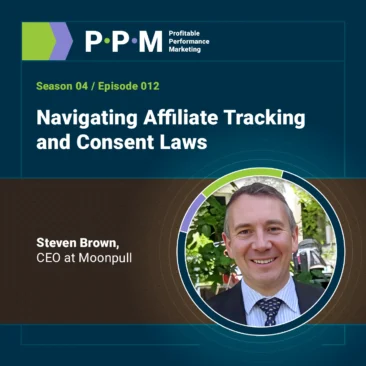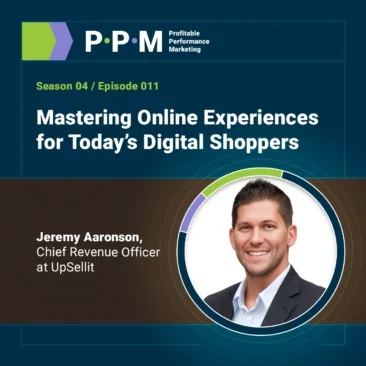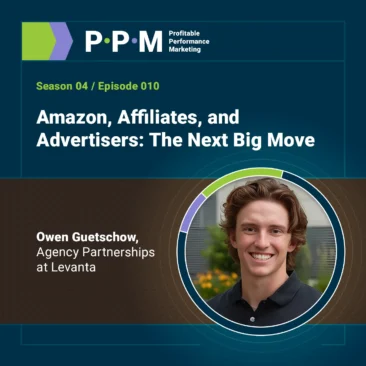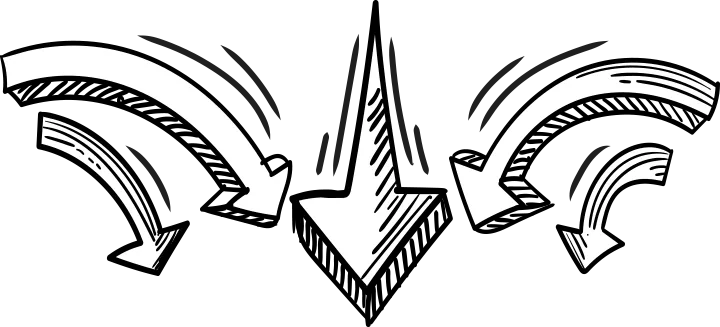Season 01 / Episode 029
Award winning affiliate marketer – Wade Tonkin, Director, Global Affiliate Marketing – Fanatics, Inc
Guest: Wade Tonkin - Director, Global Affiliate Marketing at Fanatics, Inc
Note: if you get only a 30 second preview, please log into your Spotify account, or find us on one of several other podcast services.
Summary
Today I get the pleasure of speaking with Wade Tonkin, long time friend and industry vet and Award Winning affiliate marketer. Wade and I met while he was on the sales team at Kowabunga and I was managing the Hilton Hotels affiliate program way back in the day. Wade’s done quite a bit since then and we dive into a good deal of that.
You are going to find this podcast very interesting if you:
- Are a sports affiliate
- Operate a fan site
- Are an advertiser looking to migrate platforms
- Are an advertiser looking for ideas to recruit affiliates
- Are an advertiser trying to increase the ROI from your affiliate program
- You know and love Wade and want to learn more about him
- You don’t know Wade and are looking to learn from one of the best
Wade shares some of the biggest successes at Fanatics including one large affiliate revenue challenge that his partner ended up beating by 4.5X! We talk about using Facebook to communicate with affiliates, how to divide workload amongst your team, how to manage your team and your affiliates around huge spikes during “Hot Market Events” such as the Superbowl, World Series and more.
This podcast jumps right into the deep end of affiliate marketing. You don’t want to miss it.
Listen
Share
Notify
Top Tips
Sometimes things that look like really great ideas don’t ultimately work out. Wade discusses his career transitions during the beginning of the podcast and how it landed him in the affiliate marketing industry, which included some growing pains and reminders that things usually come back full circle, but it takes time.
Wade mentions that in many cases, when you put affiliates on a tiered commission structure, it doesn’t necessarily encourage anything. Make it more hands on and achievable! Wade touches on the fact that Fanatics has become more into the idea of setting individual stretch goals for affiliates instead of simplistic structures like sliding scales. They have been focusing on building individual relationships and figuring out what makes certain affiliates tick, and they have seen it be more effective than automated tiered commissioning.
Highlights
Wade explains what he likes most about managing teams.
“Finding where everybody fits, finding their skill sets and what makes them go is one of the best and most fun aspects of running a team. Find out what people are good with, what their passions are and what fulfills them and then try to put them in positions that match those things and take advantage of their talents.”
Wade discusses the lead up to “hot market events” like the Super Bowl or NCAA Championships.
“We have found there is a huge percentage of sales that comes in the first 12 hours after a game. Preparing for this looks like making sure that we know who the key players are, and many of them get creative in advance. We get on the phone and give them a playbook for how things should look. We work minute by minute and are available to everyone if they need anything.”
Quotes
[20:52] – “The funny thing is, I still don’t know anyone that set out to be an affiliate or affiliate manager, it’s just something you fall into.”
[34:15] – “We have always prided ourselves at Fanatics because on Super Bowls and World Series’ and other hot market events, our links are live and ready to use as soon as humanly possible after the game is final. It’s mind-blowing the amount of sales that occur right after a game is final. Time is literally money.”
[41:55] – “For me, the most fulfilling part of the job is when we can work with a sports content site or somebody that has built a fan community over the years and hasn’t really been making money with it because maybe they hadn’t even thought about it. Then, we are able to come in there and make them a substantial chunk of change, which can mean different things to different people – whether it’s a few hundred dollars or 20,000.”





